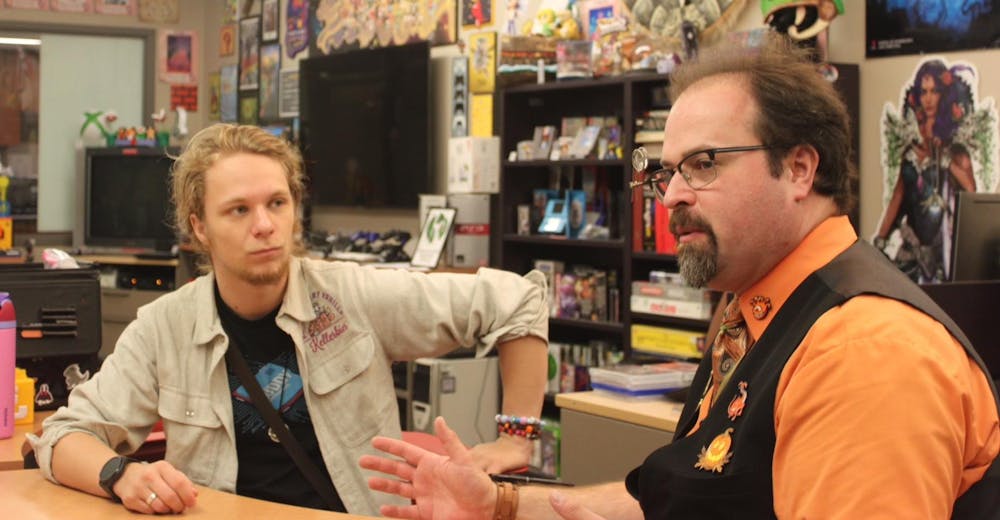INDIANAPOLIS — When two IU Indianapolis students in a video game history class said they had never played the original “Super Mario Bros” game, professor Matthew Powers stopped the lecture.
“We came up here and we hooked it up and they played ‘Super Mario Bros,’” Powers said, recalling how the two students bonded over the game. “There wasn’t a dry eye in the house. I can show you the Mona Lisa, but we don’t have that power with classic games.”
According to a study conducted by the Video Game History Foundation, of all the classic video games released in the United States, 87% are no longer available to play. Classic games in the study are defined as those released prior to 2010.
The video game preservation lab at IU Indianapolis, part of the Media Arts Research and Learning Arcade Lab, has been growing a collection of classic video games for 18 years. A group of professors, including Powers, founded the lab in pursuit of archiving classic video games.
The Media Arts Research and Learning Arcade Lab earned IU museum status in September.
“We're a museum facility, and we're not doing this for profit,” Powers said. “We're doing this for preservation for students to learn in class. We're not selling this. There's no money at all in any of the sort of thing.”
The lab is the only of its kind in Indiana and allows students to play classic video games in a learning environment by allowing students to learn more about the history of games as well as game design. Powers said it wouldn’t be possible without his lab assistant, Haven Hamelin. Hamelin catalogs every game the lab obtains, which come primarily through donations.

Student and staff video game donations sit in the front of the Media Arts Research and Learning Arcade Lab on Oct 13, 2024, in Indianapolis. MARLA grew its collection of video games and artwork for more than a decade.
The lab has every major gaming console, along with about 1,000 unique video games in its collection. The hardest part about saving classic games is that the lab has to own a physical copy of the game to legally format it to a digital software system, which can be hard to navigate, Hamelin said.
“The biggest roadblock is copyright law,” Frank Cifaldi, founder of the Video Game History Foundation, said. “We’re all going to die before any video games of note are in the public domain because of U.S. copyright law. That’s been a big hurdle for being able to make sure that people can play older content.”
Video game copyright last for the lifespan of the creator plus an additional 70 years. If a publisher paid for the development of a game, that copyright lasts either 95 years after publication or 120 years after the date of creation. Most U.S. game laws require the preserver to own a physical copy of the game, and even then, they have limited options for preservation measures.
On Oct. 25, the U.S. Copyright Office announced they would not grant an exemption in the Digital Millenium Copyright Act (DMCA) in support of video game preservation. The proposed exemption would have given researchers the ability to create and share online versions of classic video games.
Because of the new museum status, the lab is open to the public and accepts donations, even broken discs.
“There’s a lot of passion around the project and a lot of people who are very excited,” Hamelin said. “It’s a sanctuary for us kind of weirdos.”
The lab is meeting with donors in spring 2025 in hopes of launching scholarships and internship initiatives for the lab. Meanwhile, they are trying to lead preservation initiatives.
“Our ship has just landed on the beach, and we’re trying to figure out who is doing what,” Powers said.




